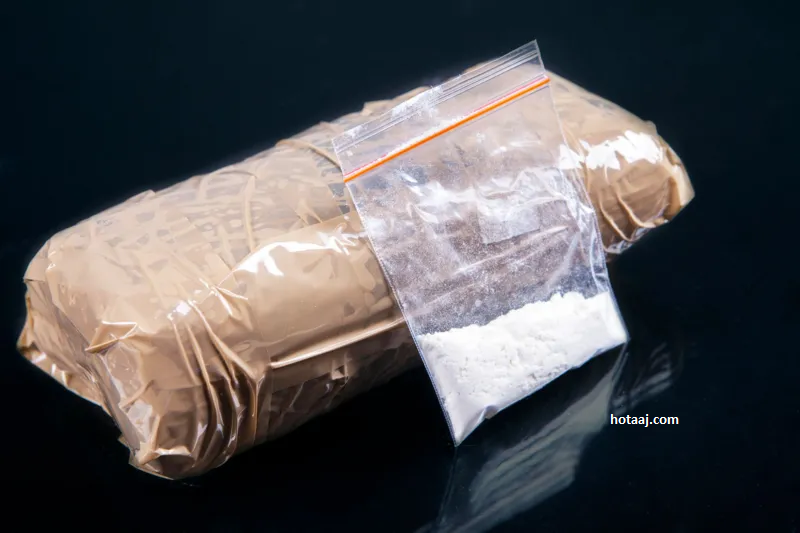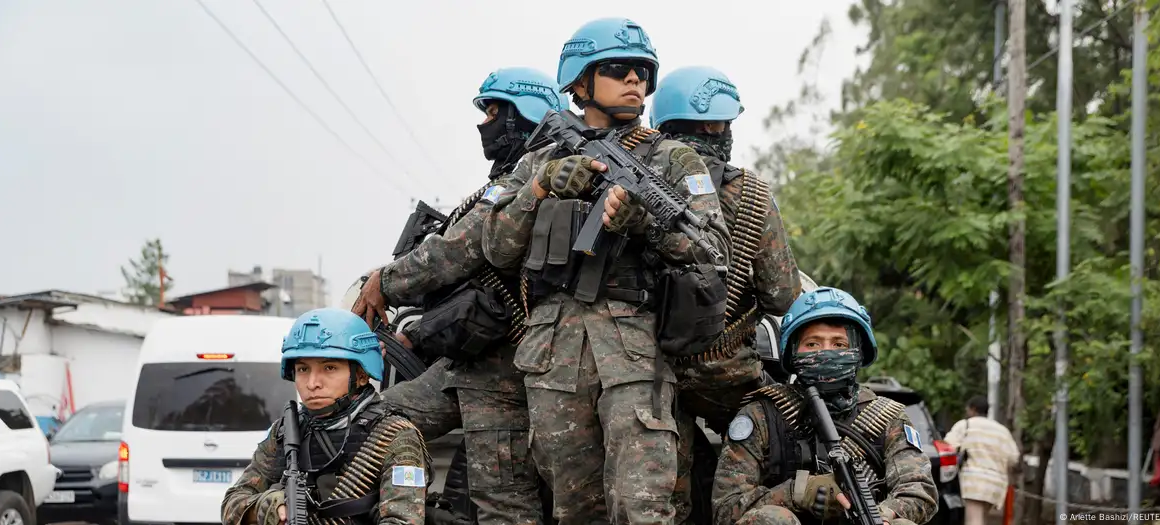
Sierra Leone has taken swift action after seven suitcases containing suspected cocaine were found in an embassy vehicle in neighboring Guinea. The incident occurred on Monday when Guinean authorities impounded a Sierra Leone embassy vehicle and detained its occupants under suspicion of possessing “substances suspected to be cocaine,” as confirmed by Sierra Leone’s Foreign Minister, Alhaji Musa Timothy Kabba.
In response to the serious nature of the situation, Sierra Leone’s government recalled its ambassador to Guinea, Ambassador Alimamy Bangura, back to Freetown for a full investigation. The Foreign Minister assured that the ambassador was not involved in the incident, stating that he was not in the vehicle at the time and is not under arrest. “It has not been proven that the ambassador is involved in this trafficking,” Kabba clarified.
Alongside the seven suitcases, Guinean authorities reportedly found about $2,000 in cash, though the weight of the suspected drugs has not been disclosed by Sierra Leone’s officials. The government has expressed its commitment to getting to the bottom of the incident and holding any responsible parties accountable.
The situation has raised questions about the potential misuse of diplomatic immunity, and authorities in both Guinea and Sierra Leone are likely to continue their investigation in the coming days.
Sierra Leone and Guinea are working together on a “thorough” investigation into the discovery of suspected cocaine in a Sierra Leonean embassy vehicle, with both governments vowing to hold those responsible accountable. Sierra Leone’s Foreign Minister, Alhaji Musa Timothy Kabba, made it clear that anyone found guilty of breaking Sierra Leonean and international drug trafficking laws would face the full force of the law.
West Africa, where both Sierra Leone and Guinea are located, has long been a major transit point for cocaine trafficking, with drugs being smuggled from Latin America to Europe, one of the largest markets for cocaine. While much of the cocaine is trafficked through the region, drug use is also on the rise locally.
In response to growing concerns, Sierra Leone’s President Julius Maada Bio declared drug abuse a national emergency last April. The country has faced significant challenges related to drug addiction, particularly with “Kush,” a highly addictive psychoactive blend. Local communities have called on the government to take decisive action in addressing drug abuse and to provide support for dealing with users.
This latest incident underscores the urgent need for stronger measures to combat drug trafficking and abuse in the region. Both Sierra Leone and Guinea are committed to ensuring a thorough investigation and taking steps to prevent such incidents in the future.
Courtesy: National Geographic
References
- ^ Jump up to:a b “World Population Prospects 2022”. United Nations Department of Economic and Social Affairs, Population Division. Retrieved 17 July 2022.
- ^ Jump up to:a b “World Population Prospects 2022: Demographic indicators by region, subregion and country, annually for 1950-2100” (XSLX) (“Total Population, as of 1 July (thousands)”). United Nations Department of Economic and Social Affairs, Population Division. Retrieved 17 July 2022.
- ^ “GDP PPP, current prices”. International Monetary Fund. 2022. Archived from the original on 22 January 2021. Retrieved 16 January 2022.
- ^ “GDP Nominal, current prices”. International Monetary Fund. 2022. Archived from the original on 25 February 2017. Retrieved 16 January 2022.
- ^ “Nominal GDP per capita”. International Monetary Fund. 2022. Archived from the original on 11 January 2020. Retrieved 16 January 2022.
- ^ “Gordon Conwell Theological Seminary, African Christianity, 2020”. 18 March 2020. Archived from the original on 3 May 2021. Retrieved 1 July 2021.
- ^ Mbiti, John S (1992). Introduction to African religion. East African Publishers. ISBN 9780435940027.
When Africans are converted to other religions, they often mix their traditional religion with the one to which they are converted. In this way they are not losing something valuable, but are gaining something from both religious customs
- ^ Riggs, Thomas (2006). Worldmark Encyclopedia of Religious Practices: Religions and denominations. Thomson Gale. p. 1. ISBN 9780787666125.
Although a large proportion of Africans have converted to Islam an Christianity, these two world religions have been assimilated into African culture, and many African Christians and Muslims maintain traditional spiritual beliefs
- ^ Jump up to:a b Sayre, April Pulley (1999), Africa, Twenty-First Century Books. ISBN 0-7613-1367-2.
- ^ Swanson, Ana (17 August 2015). “5 ways the world will look dramatically different in 2100”. The Washington Post. Archived from the original on 26 September 2017. Retrieved 26 September 2017.
- ^ Harry, Njideka U. (11 September 2013). “African Youth, Innovation and the Changing Society”. The Huffington Post. Archived from the original on 20 September 2013. Retrieved 27 September 2013.
- ^ Janneh, Abdoulie (April 2012). “item, 4 of the provisional agenda – General debate on national experience in population matters: adolescents and youth” (PDF). United Nations Economic Commission for Africa. Archived (PDF) from the original on 10 November 2013. Retrieved 15 December 2015.
- ^ “Population by world region”. Our World in Data. 11 July 2024. Retrieved 8 October 2024.
- ^ Jump up to:a b Collier, Paul; Gunning, Jan Willem (1 August 1999). “Why Has Africa Grown Slowly?”. Journal of Economic Perspectives. 13 (3): 3–22. doi:10.1257/jep.13.3.3. ISSN 0895-3309.
- ^ Alemazung, Joy Asongazoh (1 September 2010). “Post-colonial colonialism: an analysis of international factors and actors marring African socio-economic and political development” (PDF). Journal of Pan African Studies. 3 (10): 62–85. S2CID 140806396. Gale A306596751. Archived (PDF) from the original on 27 November 2021. Retrieved 24 October 2021.
- ^ Bayeh, Endalcachew (February 2015). “The political and economic legacy of colonialism in the post-independence African states”. International Journal in Commerce, IT & Social Sciences. 2 (2): 89–93. doi:10.4000/poldev.78. S2CID 198939744.
- ^ “Africa. General info”. Visual Geography. Archived from the original on 24 April 2011. Retrieved 24 November 2007.
- ^ Studies, the Africa Center for Strategic. “African Biodiversity Loss Raises Risk to Human Security”. Africa Center for Strategic Studies. Archived from the original on 12 July 2023. Retrieved 12 July 2023.
- ^ Schneider, S. H.; et al. (2007). “19.3.3 Regional vulnerabilities”. In Parry, M.L.; et al. (eds.). Chapter 19: Assessing Key Vulnerabilities and the Risk from Climate Change. Climate change 2007: impacts, adaptation, and vulnerability: contribution of Working Group II to the fourth assessment report of the Intergovernmental Panel on Climate Change (IPCC). Cambridge University Press (CUP): Cambridge, UK: Print version: CUP. This version: IPCC website. ISBN 978-0-521-88010-7. Archived from the original on 12 March 2013. Retrieved 15 September 2011.
- ^ Niang, I., O.C. Ruppel, M.A. Abdrabo, A. Essel, C. Lennard, J. Padgham, and P. Urquhart, “2014: Africa”. In: Climate Change 2014: Impacts, Adaptation, and Vulnerability. Part B: Regional Aspects. Contribution of Working Group II to the Fifth Assessment Report of the Intergovernmental Panel on Climate Change [Barros, V.R., C.B. Field, D.J. Dokken et al. (eds.)]. Cambridge University Press, Cambridge, and New York, pp. 1199–1265. https://www.ipcc.ch/site/assets/uploads/2018/02/WGIIAR5-Chap22_FINAL.pdf, Archived 19 June 2020 at the Wayback Machine.
- ^ “One of Africa’s best kept secrets – its history”. BBC News. 1 July 2017. Archived from the original on 29 July 2021. Retrieved 29 July 2021.
- ^ Mouralis, Bernard (2022). “Orality”. Encyclopedia of African Religions and Philosophy. Springer. pp. 537–539. doi:10.1007/978-94-024-2068-5_296. ISBN 978-94-024-2066-1.
- ^ Vansina, Jan (1981). “Oral tradition and its methodology”. General History of Africa: Volume 1. UNESCO Publishing.
- ^ “Homo sapiens: University of Utah News Release: 16 February 2005”. Archived from the original on 24 October 2007.
- ^ Jump up to:a b Schlebusch, Carina M; Malmström, Helena; Günther, Torsten; Sjödin, Per; Coutinho, Alexandra; Edlund, Hanna; Munters, Arielle R; Vicente, Mário; Steyn, Maryna; Soodyall, Himla; Lombard, Marlize; Jakobsson, Mattias (2017). “Southern African ancient genomes estimate modern human divergence to 350,000 to 260,000 years ago”. Science. 358 (6363): 652–655. Bibcode:2017Sci…358..652S. doi:10.1126/science.aao6266. PMID 28971970.
- ^ Jump up to:a b Sample, Ian (7 June 2017). “Oldest Homo sapiens bones ever found shake foundations of the human story”. The Guardian. Archived from the original on 31 October 2019. Retrieved 7 June 2017.
- ^ Jump up to:a b Zimmer, Carl (10 September 2019). “Scientists Find the Skull of Humanity’s Ancestor – on a Computer – By comparing fossils and CT scans, researchers say they have reconstructed the skull of the last common forebear of modern humans”. The New York Times. Archived from the original on 31 December 2019. Retrieved 10 September 2019.
- ^ Jump up to:a b Mounier, Aurélien; Lahr, Marta (2019). “Deciphering African late middle Pleistocene hominin diversity and the origin of our species”. Nature Communications. 10 (1): 3406. Bibcode:2019NatCo..10.3406M. doi:10.1038/s41467-019-11213-w. PMC 6736881. PMID 31506422.
- ^ Vidal, Celine M.; Lane, Christine S.; Asfawrossen, Asrat; et al. (January 2022). “Age of the oldest known Homo sapiens from eastern Africa”. Nature. 601 (7894): 579–583. Bibcode:2022Natur.601..579V. doi:10.1038/s41586-021-04275-8. PMC 8791829. PMID 35022610.
- ^ “The genetic diversity in Africa is greater than in any other region in the world”. 19 July 2018. Archived from the original on 24 October 2021. Retrieved 24 October 2021.
- ^ “New study confirms that Africans are the most genetically diverse people on Earth. And it claims to pinpoint our center of origin”. Archived from the original on 24 October 2021. Retrieved 24 October 2021.
- ^ “Africa is most genetically diverse continent, DNA study shows”. 9 June 2009. Archived from the original on 24 October 2021. Retrieved 24 October 2021.
- ^ The Egba United Government, a government of the Egba people, was legally recognized by the British as independent until being annexed into the Colony and Protectorate of Nigeria in 1914: Daly, Samuel Fury Childs (4 May 2019). “From Crime to Coercion: Policing Dissent in Abeokuta, Nigeria, 1900–1940”. The Journal of Imperial and Commonwealth History. 47 (3): 474–489. doi:10.1080/03086534.2019.1576833. ISSN 0308-6534. S2CID 159124664. Archived from the original on 7 April 2022. Retrieved 5 July 2022.
- ^ Jump up to:a b Hargreaves, John D. (1996). Decolonization in Africa (2nd ed.). London: Longman. ISBN 0-582-24917-1. OCLC 33131573.
- ^ Georges, Karl Ernst (1913–1918). “Afri”. In Georges, Heinrich (ed.). Ausführliches lateinisch-deutsches Handwörterbuch (in German) (8th ed.). Archived from the original on 16 January 2016. Retrieved 20 September 2015.
- ^ Lewis, Charlton T.; Short, Charles (1879). “Afer”. A Latin Dictionary. Oxford: Clarendon Press. Archived from the original on 16 January 2016. Retrieved 20 September 2015.
- ^ Vycichl, W. (1 November 1985). “Africa”. Encyclopédie berbère (in French) (2): 216–217. doi:10.4000/encyclopedieberbere.888. ISSN 1015-7344.
Etymology: The Latin designation (Africa) originally meant the land of the Afri, an indigenous tribe of present-day northern Tunisia, often confused with the Carthaginians, but Livy clearly distinguishes the Afri from the Carthaginians:- “Hasdrubal placed the Carthaginians on the right wing and the Afri on the left”- “the Carthaginians and the African veterans”- “the Carthaginians had Afri and Numidians as mercenaries”- “the horsemen of the Libyphoenicians, a Carthaginian tribe mixed with Afri
- ^ Venter & Neuland, NEPAD and the African Renaissance (2005), p. 16.
- ^ Desfayes, Michel (25 January 2011). “The Names of Countries”. michel-desfayes.org. Archived from the original on 27 June 2019. Retrieved 9 April 2019.
Africa. From the name of an ancient tribe in Tunisia, the Afri (adjective: Afer). The name is still extant today as Ifira and Ifri-n-Dellal in Greater Kabylia (Algeria). A Berber tribe was called Beni-Ifren in the Middle Ages and Ifurace was the name of a Tripolitan people in the 6th century. The name is from the Berber language ifri ‘cave’. Troglodytism was frequent in northern Africa and still occurs today in southern Tunisia. Herodote wrote that the Garamantes, a North African people, used to live in caves. The Ancient Greek called troglodytēs an African people who lived in caves. Africa was coined by the Romans and ‘Ifriqiyeh‘ is the arabized Latin name. (Most details from Decret & Fantar, 1981).
- ^ Jump up to:a b Babington Michell, Geo (1903). “The Berbers”. Journal of the Royal African Society. 2 (6): 161–194. doi:10.1093/oxfordjournals.afraf.a093193. JSTOR 714549. Archived from the original on 30 December 2020. Retrieved 30 August 2020.
- ^ Edward Lipinski, Itineraria Phoenicia A













